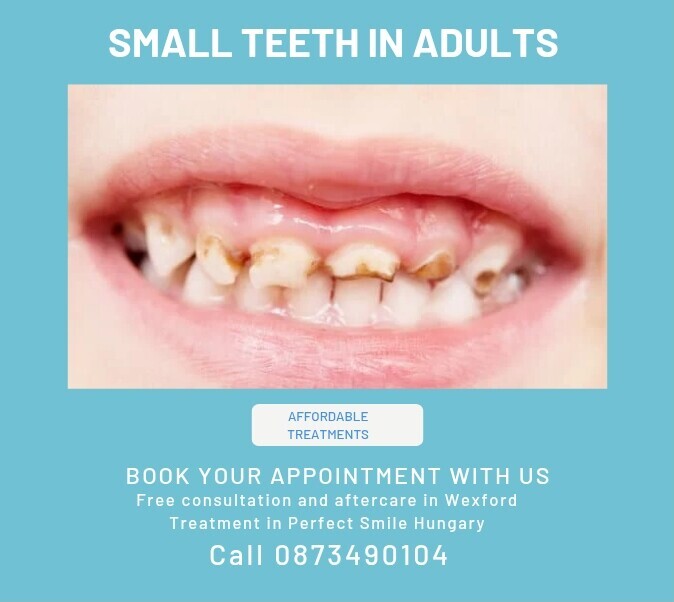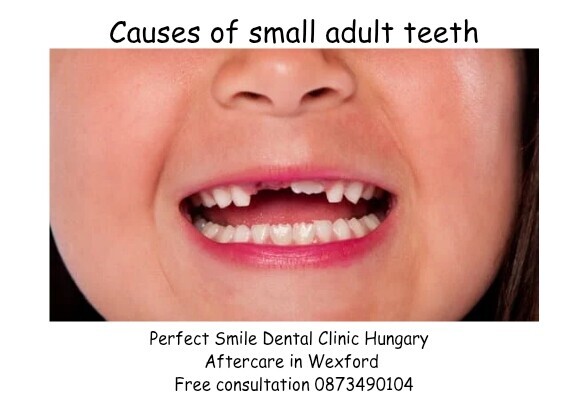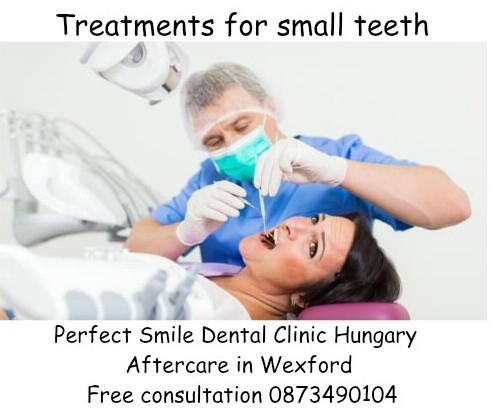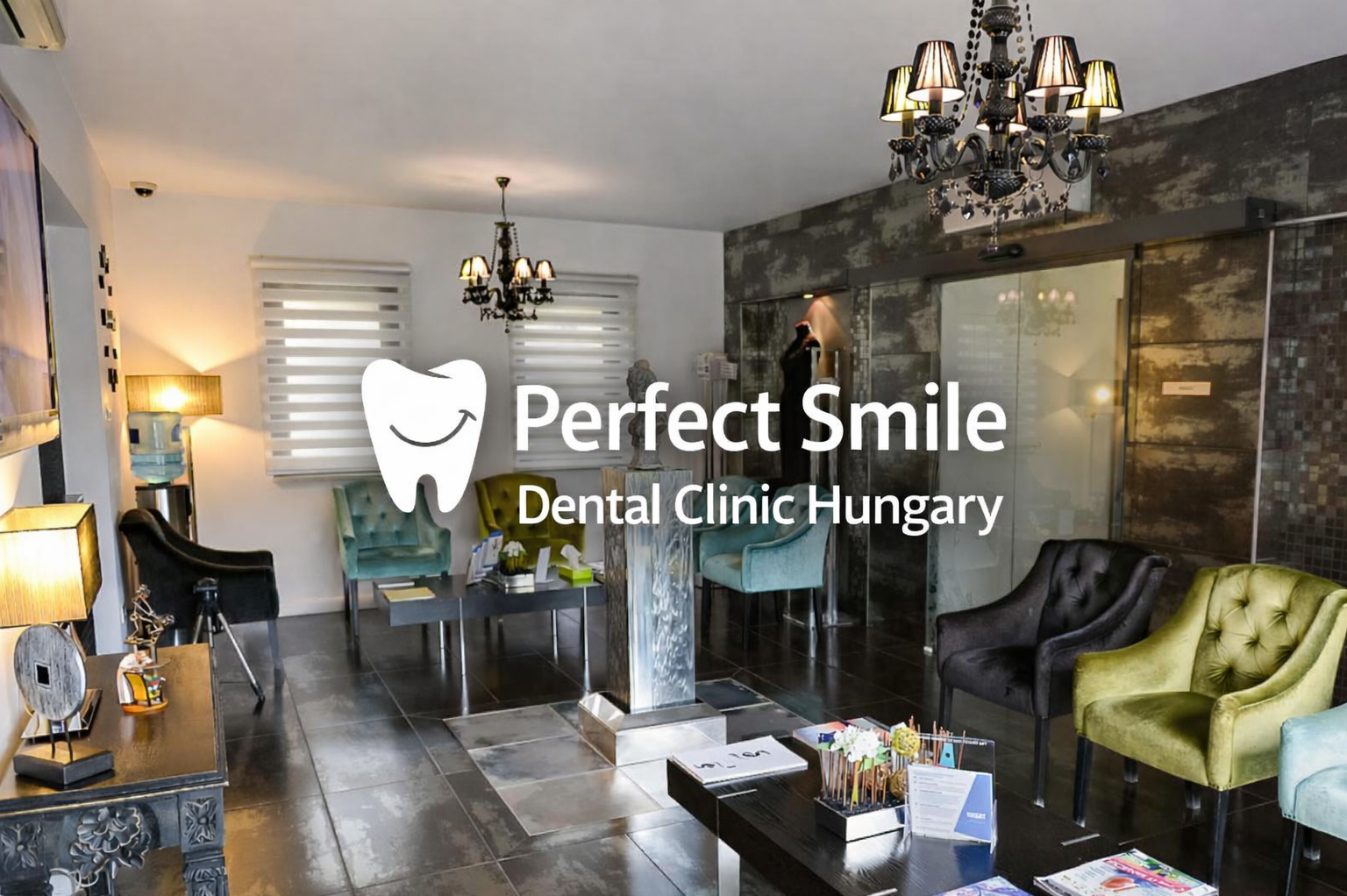Small teeth in adults
Small teeth in adults is a topic that pops up often in dental conversations but doesn’t always get the attention it deserves.
Having teeth that look noticeably smaller than average can be frustrating. It can affect your smile, make you feel self-conscious, and sometimes even lead to bite or speech issues.
There are several reasons behind small teeth, and the good news is that many options exist for improving appearance and function.
This article covers the basics of small teeth in adults, why it happens, what it means for dental health, and what steps you can take if you want to address it.

Common Reasons Adults Have Small Teeth
Small teeth in adults might be obvious from childhood, or they may become noticeable over time.
Generally speaking, small teeth in adults are there for a few reasons, genetics play a part and environmental factors.
Knowing the possible reasons behind small teeth helps you make the right decisions about treatment, treatment that can change how your teeth feel and look.
The main causes include:
- Genetics: The size and shape of teeth are mostly created by the genes that we inherit. If some members of your adult family have small teeth then it’s likely that you will have them as well.
- Microdontia: This is a dental term for teeth that are smaller than the typical size. Some adults have microdontia affecting all their teeth (generalized), while others have it on just a few teeth (localized).
- Tooth Wear: Over time, teeth can appear smaller as a result of grinding (bruxism) or erosion from acid wear. This usually causes the edges of my teeth to wear away, making them look shorter.
- Developmental Conditions: Sometimes, conditions like down syndrome, ectodermal dysplasia, or certain hormonal disorders can also lead to small teeth.
What Small Teeth Might Mean for Oral Health
Small teeth are usually a cosmetic issue. However, they can also have an impact on how your mouth functions.
Teeth play a bigger role than just helping you to chew your food.
Small teeth in adults affect how jaws come together (the bite), support speech, and even how facial features line up.
If gaps exist between my teeth due to their small size, food can get stuck more easily, which increases the risk of cavities and gum problems.
You may also develop a gap between my front teeth (a diastema), or have spaces that affect my bite.
In more severe cases, speech patterns can shift, and eating some foods might be uncomfortable.
That’s why it’s really important to talk any concerns over with a trusted dentist.
Call us at Hungarian Dentists Wexford on 0873490104, we can check your teeth and perhaps offer a solution for small teeth in adults.
By the way, all suitable treatments for small teeth in adults are performed in Perfect Smile Dental Clinic in Hungary.
Our experienced dental professionals will take good care of you, small teeth treatments take just one visit to Perfect Smile and we look after any follow ups in Wexford.
The number to all is 0873490104, Fintan will take your call, he can organise a consultation with one of our Hungarian dentists in Wexford.

How Dentists Diagnose Small Teeth in Adults
Diagnosis of small teeth in adults starts with a good look at your dental and medical history, as well as a thorough exam.
Our Hungarian dentist will often measure teeth, check my bite, and take X-rays to examine the roots, jawbone, and surrounding gums.
They may also ask about any family history of small teeth or related conditions, since hereditary patterns are common.
If our dentist suspects an underlying development issue, more tests or referrals to a dental specialist may be suggested.
Reviewing how your teeth fit together (the occlusion) is key, since small teeth can sometimes result in bite problems that need to be handled with appearance in mind.
Possible Solutions and Treatments for Small Teeth
There are several dental treatments available if you are bothered by the way small teeth look or if they’re causing other problems.
The best option depends on whether just a few teeth are small, or if the issue affects most of your teeth. Here’s an overview of the most common solutions:
- Dental Bonding: Composite resin is built up on the surface of small teeth to add length and bulk. Bonding is an affordable, quick way to improve shape and fill spaces. The color and shape can be customized to match my surrounding teeth. Bonding usually works best for minor size adjustments, especially in the front teeth.
- Veneers: Thin porcelain shells are bonded onto the front of teeth, instantly giving the appearance of larger, more even teeth. Veneers offer a durable and naturally attractive option for many adults seeking cosmetic improvement. The process usually takes one visit and does require a small amount of enamel removal.
- Crowns: For teeth that are not only small but weak or damaged, crowns might be the best option. A dental crown covers the whole visible part of the tooth, adding length, width, and protection.
- Orthodontics: If your small teeth have also led to gaps or bite problems, braces or clear aligners can move my teeth and close spaces before cosmetic treatment. This is sometimes paired with bonding or veneers for the best look and function.
- Gum Reshaping: Sometimes, teeth only look small because the gums cover too much enamel. A gum lift (gingivectomy) reveals more of the natural tooth, making it appear larger and improving symmetry.
Some dental treatment plans combine these solutions small teeth in adults for a more personalized approach.
For example, orthodontics may be paired with veneers to address gaps and create a harmonious smile.
Dental Implants and bridges may also be suggested if small teeth are associated with missing teeth or underlying structural deficiencies.

What to Think About Before Choosing Treatment
Treating small teeth is a personal decision based on how much it bothers you, your dental health, and your budget.
You need to talk through the options with our dentist or prosthodontist, who can explain the benefits and risks of each treatment.
Realistic expectations are key. For example, bonding can stain and chip over time, while veneers and crowns are more durable but also more expensive.
Certain conditions like teeth grinding or gum disease should be fixed before starting cosmetic work.
If you are looking into orthodontics, you may need to commit to a longer treatment plan, that will need to be carried out in an orthodontic clinic in Ireland.
Dentists often use digital smile design or mockups to show what the results could look like, so that you can make an informed decision.
Long-term maintenance also matters.
Each option has its own set of aftercare requirements; for instance, bonded teeth might need occasional touch-ups, while veneers and crowns require careful brushing and dental checkups.
Contact Fintan 0873490104 to find out more about small teeth in adults and what your options are.
Insurance can be a deciding factor too. Not every plan covers cosmetic work, but some treatments, like crowns for damaged teeth, might be partly covered.
It’s smart to check plan details and discuss payment options with the clinic staff before making a choice.
Troubles and Challenges That Come Up With Small Teeth
Living with small teeth means occasionally facing unique problems. Sometimes, you may notice extra sensitivity if my enamel is thin, or you may not have enough bite force for certain foods.
Spacing between the teeth can lead to more frequent food trapping and trouble flossing.
You might even feel a lack of confidence in social settings if you are unhappy with your smile’s appearance.
Wearing a mouthguard at night can help if you grind your teeth. Regular dental cleanings and good oral hygiene really help keep gaps and rough edges healthy and free from cavities.
Dental teams are used to working with these challenges, so mentioning any issues during a visit means help can usually be found.

How To Tackle Common Issues
- Sensitivity: Special toothpastes and dental sealants can help protect exposed enamel.
- Difficulty Biting: Dental treatments like bonding and crowns often ease eating issues.
- Gaps and Food Traps: Interdental brushes and floss picks are handy for cleaning between small or widely spaced teeth. Waxed floss can also make it easier to slide between tight spaces and help prevent gum irritation.
- Confidence: For some adults, making even minor cosmetic improvements can make a big difference in self-esteem. Practicing smiling in the mirror or with friends can help boost comfort, especially after treatment.
Learning how to best use dental tools, like water flossers or electric toothbrushes, is another tip for getting the most out of daily care.
Don’t forget, bringing up any concerns at regular dental appointments means professional support is just a conversation away.
Read dental implants price list Ireland 2025.
References
https://pubmed.ncbi.nlm.nih.gov/37788528/
https://www.sciencedirect.com/topics/medicine-and-dentistry/microdontia
